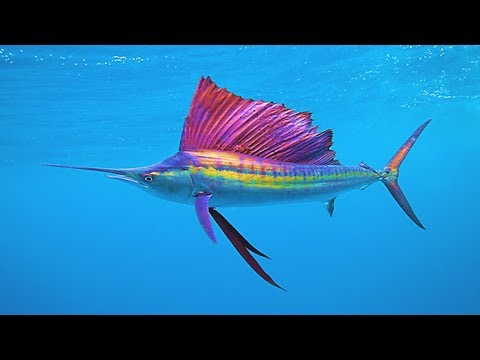Sailfish
What are the top 10 fastest animals in the water?
Top 10 fastest sea animals killer whales. Speed: 55 km / h. Interesting fact: Hunt together as a group. .. Barracuda. Speed: 58 km / h. .. Skipjack. Speed: 62 km / h. .. Bluefin tuna. Speed: 69 km / h. .. Flying fish. Speed: 70 km / h. .. Pilot whale. Speed: 76 km / h. .. Mahimahi. Speed: 93 km / h. .. swordfish. Speed: Top 10 fastest sea animals at 96 km / h

Below you will find two helpful answers on a similar topic. 👇
What are the top 3 fastest sea animals?What is the world's deadliest spider in the world?
